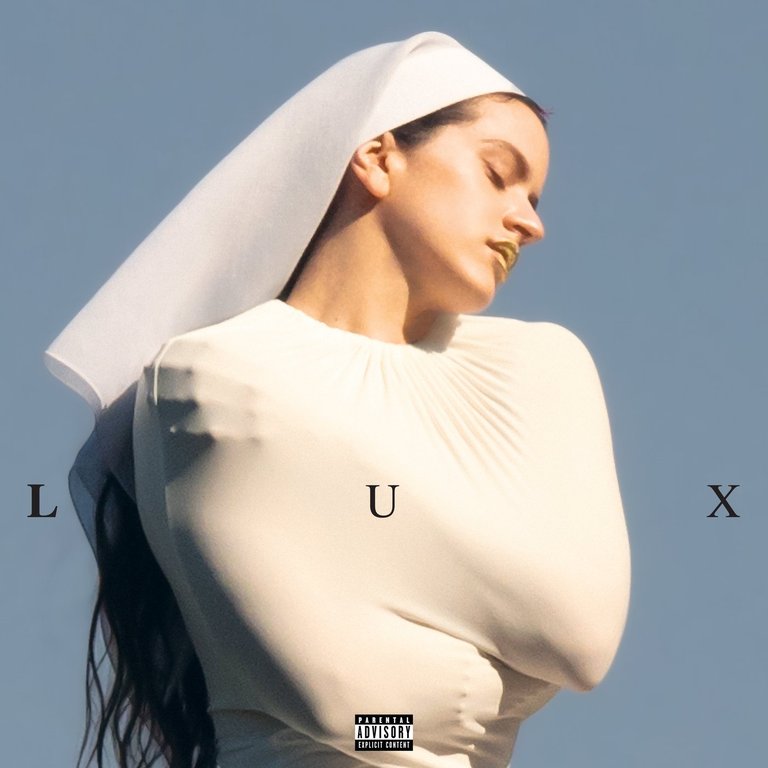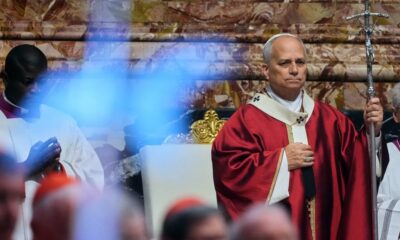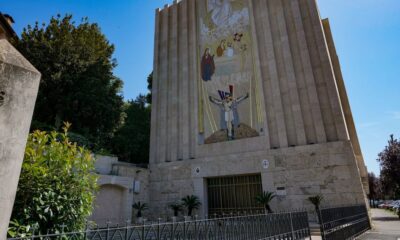Entertainment
Rosalía’s ‘Lux’ Captivates Vatican Leaders with Spiritual Themes

Renowned Spanish pop artist Rosalía has made a remarkable shift in her musical career with the release of her latest album, “Lux,” which explores profound spiritual themes. The album features fifteen tracks sung in thirteen languages, including Latin, Arabic, and Hebrew, and has garnered attention for its heartfelt expressions of faith. This transformation has resonated deeply with both fans and church leaders, including Cardinal José Tolentino de Mendonça, the Vatican’s culture minister.
The album, which translates to “Light” in Latin, is described as a spiritual journey that departs from Rosalía’s previous Grammy-winning works, such as “El mal querer” and “Motomami.” In an open letter, Xabier Gómez García, the bishop of Sant Feliu de Llobregat, praised the album, highlighting its capacity to convey deep spiritual yearning. He emphasized that Rosalía “speaks with absolute freedom” about her relationship with the divine, making a thoughtful connection between her music and the broader spiritual landscape.
Spiritual Exploration and Musical Diversity
Rosalía’s creative process for “Lux” reflects her desire to explore spirituality in today’s secular world. In a recent interview, she stated, “In an age that seems not to be the age of faith or certainty or truth, there is more need than ever for a faith, or a certainty, or a truth.” This introspective journey has led to a blend of various musical styles, from classical strings to modern flamenco, showcasing her artistic versatility.
The album is off to a strong start, with four songs featured in Spotify’s Top 50 global chart, surpassing even popular artists like Taylor Swift. The mix of high-culture references and contemporary pop sensibilities has drawn praise from notable figures, including composer Andrew Lloyd Webber, who has called it the “album of the decade.”
Complex Themes and Cultural Resonance
Listeners may find “Lux” both alluring and challenging due to its elaborate orchestration and thought-provoking lyrics. For instance, in the song “Reliquia,” Rosalía compares herself to female saints, reflecting on the parts of her life she has left behind in cities worldwide. Additionally, her track “Mio Cristo Piange Diamanti” evokes vivid Baroque imagery, portraying a poignant relationship with spirituality.
Experts in religious studies, such as Victoria Cirlot from Pompeu Fabra University, commend the album for introducing complex religious concepts to a broader audience. Cirlot notes that Rosalía’s ability to embody mystical gestures through her performance enhances the impact of her music, creating a unique experience for listeners.
Rosalía has embraced influences from various religious traditions, transcending traditional Catholic practices while also exploring the narratives of female saints. This eclectic approach enriches “Lux,” allowing it to resonate with listeners from diverse backgrounds.
As Rosalía continues to captivate audiences with her innovative sound and spiritual exploration, her journey reflects a significant evolution in her artistry. The acclaim from both fans and church leaders suggests that “Lux” may well redefine the boundaries of contemporary music, merging pop culture with deep cultural and spiritual roots.
-

 Politics2 weeks ago
Politics2 weeks agoSecwepemc First Nation Seeks Aboriginal Title Over Kamloops Area
-

 World4 months ago
World4 months agoScientists Unearth Ancient Antarctic Ice to Unlock Climate Secrets
-

 Entertainment4 months ago
Entertainment4 months agoTrump and McCormick to Announce $70 Billion Energy Investments
-

 Lifestyle4 months ago
Lifestyle4 months agoTransLink Launches Food Truck Program to Boost Revenue in Vancouver
-

 Science4 months ago
Science4 months agoFour Astronauts Return to Earth After International Space Station Mission
-

 Technology3 months ago
Technology3 months agoApple Notes Enhances Functionality with Markdown Support in macOS 26
-

 Top Stories1 month ago
Top Stories1 month agoUrgent Update: Fatal Crash on Highway 99 Claims Life of Pitt Meadows Man
-

 Sports4 months ago
Sports4 months agoSearch Underway for Missing Hunter Amid Hokkaido Bear Emergency
-

 Politics4 months ago
Politics4 months agoUkrainian Tennis Star Elina Svitolina Faces Death Threats Online
-

 Lifestyle2 months ago
Lifestyle2 months agoManitoba’s Burger Champion Shines Again Amid Dining Innovations
-

 Politics4 months ago
Politics4 months agoCarney Engages First Nations Leaders at Development Law Summit
-

 Technology4 months ago
Technology4 months agoFrosthaven Launches Early Access on July 31, 2025




















